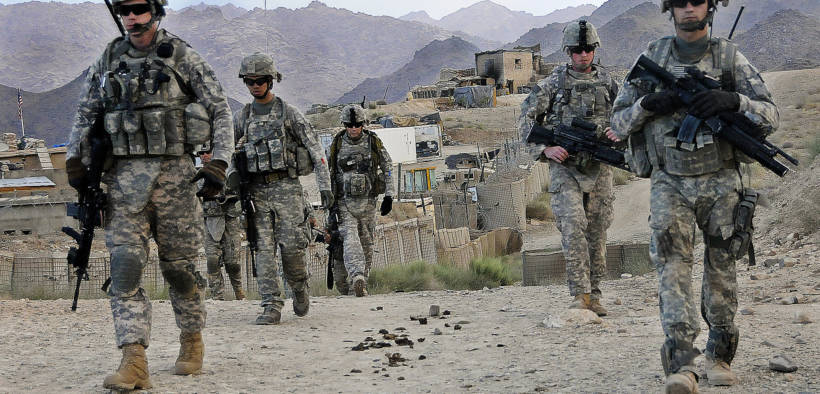US and Taliban Agree to Seven-Day Ceasefire

“We hope this well lead into cease-fire and intra-Afghan talks.”
A temporary US– Afghan Taliban peace agreement has come to fruition after months of negotiation. The deal, which takes effect Friday, includes a weeklong “reduction in violence”, according to BBC. Secretary of State Mike Pompeo announced the accord and expressed a hope that a successful week of peace will lead to the signing of a long-term ceasefire.
A Year of Talks
“This is an important step on a long road to peace,” Pompeo said in a prepared statement. “Upon a successful implementation of this understanding, signing of the US-Taliban agreement is expected to move forward. We are preparing for the signing to take place on 29 February.”
Taliban negotiators were also buoyant about the prospect of an end to the conflict that has ravaged Afghanistan for 18 years. The aim of the 7-day ceasefire is to create “a suitable security situation” in advance of a permanent peace agreement, they said, which the hope will provide optimal conditions for a complete US withdrawal.
The temporary ceasefire is a result of talks that began in December 2018. Taliban negotiators refused to coordinate with the Afghan government, which they view as illegitimate. Discussions, held in Qatar, progressed over the course of 2019 before President Donald Trump nearly cancelled the deal after the terrorist organization conceded that it had killed an American soldier in an attack.
Qatar has served as an intermediary for Taliban officials since 2011 when leaders of the group relocated to the third-party state. In the 8 years since that time, little progress or even hope of a deal has transpired.
Just in Time for the 2020 Election
During Trump’s 2016 election campaign, he pledged to extricate US forces from Middle Eastern entanglements, but overall progress on that front has been negligible. Although he withdrew US troops from Syria, most were simply moved to Iraq. Additionally, the president has deployed more thousands of additional troops to Saudi Arabia as a deterrence to Iranian aggression.
Forging a successful US–Taliban peace accord would be a significant accomplishment for any leader, but particularly Trump who stands for reelection this year. In a way, it mirrors the situation of 2011 when former President Barack Obama gave the go-ahead order to kill Osama bin Laden, Taliban leader and September 11 terror attack mastermind. Unlike Obama’s accomplishment, however, Trump’s deal with the Taliban could have long-term benefits and reshape American military strategy in the Middle East, whereas the assassination of bin Laden was more of a symbolic victory.
Since the war began in 2001, 3,500 allied soldiers have perished in Afghanistan, including 2,300 Americans, according to BBC. The UN has pegged civilian casualties at 32,000. Presently, the US maintains a force of 13,000 in the Middle Eastern state, Courtney McBride wrote for The Wall Street Journal.
The 7-day ceasefire agreement prohibits attacks against all sides, including Afghan security forces. It also expressly bans improvised explosive devices (roadside bombs), suicide bombs, and rocket attacks, WSJ reported.
The signing of a broader US–Taliban deal could pave the way for an agreement between the terror group and the Afghan government. Previously, the Taliban said a US deal is a precondition prior to starting discussions with the Afghan National Security Council.
Spokesman Javid Faisal said, “We hope this well lead into cease-fire and intra-Afghan talks.”
Question of Trust
The onus is on the Taliban to rein in its fighters, which could be a monumental task given the organizational structure of terror cells. Lone wolf actors self-identifying as Taliban could imperil the peace deal if they act without direction from leadership.
Furthermore, the Taliban’s sincerity and trust will be a factor. In the event of an attack during the next week, it could hypothetically simply disavow it as unsanctioned. The US military will monitor for any breaches of the ceasefire, an official said prior to its agreement.
During discussions, Taliban leader Sirajuddin Haqqani penned an opinion article in The New York Times.
“Achieving the potential of the agreement, ensuring its success and earning lasting peace will depend on an equally scrupulous observance by the United States of each of its commitments,” Haqqani wrote. He also gave an assurance that women would have rights afforded within Sharia law to work and study. When the Taliban rose to power, they barred women from activities outside their homes, however.















